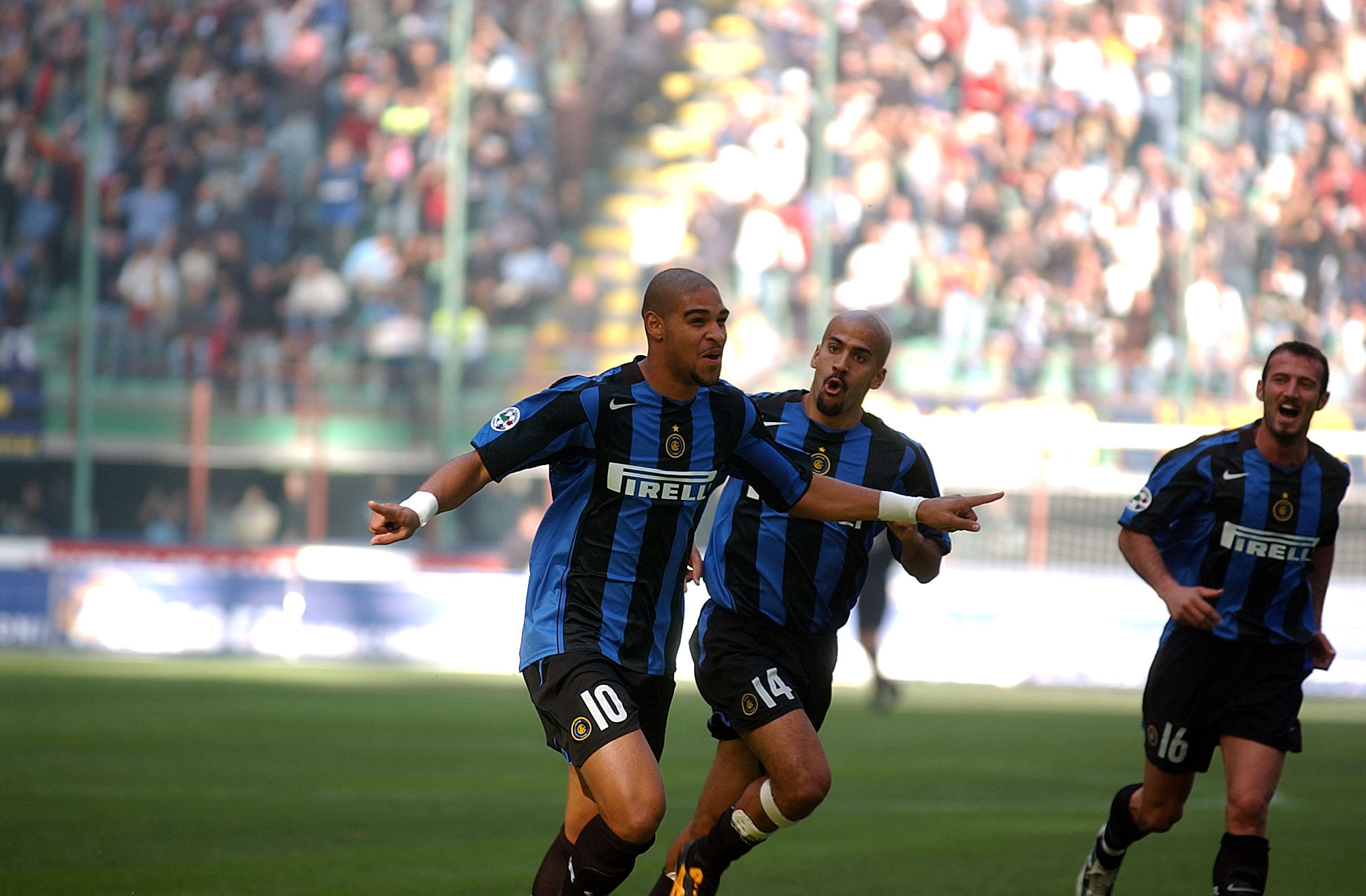In Anna Del Conte’s seminal Gastronomy of Italy, she declares that Lombardy “has always known wealth. The land is rich and the people are hard working and rich.” It’s capital, Milan, has an elegance bordering on decadence. This is where Italy and Europe’s elite come. They come to eat, shop, party and pray. And they come to watch football.
Rome may be the state capital of Italy, but Milan is the football capital. The Giuseppe Meazza is its great cathedral. It’s seen a multitude of sins and bared witness to countless redemptions; and plenty of them came just during Internazionale’s turbulent 2000s.
Let’s start at the end. We know the drill when a captain collects a trophy. They’re ecstatic, and rightly so. They lift it aloft. Then we move on, onto the next season and the next final. But regardless if you’re an Interista or not, the image of a bug eyed and screaming Javier Zanetti frantically waving the European cup must be seared in most football fans memory, even a decade on. This wasn’t just redemption. It was deliverance. Zanetti, a man so consistent and unglamorous he was nicknamed El Tractor, had just led the most romantic club in Italy to a treble. The first and so far, only captain of an Italian club to do so.
We know where this started. They’ve been well trodden. Juventus defender Mark Iuliano clattering into Inter’s beloved Ronaldo for a stonewall penalty in 1998 that somehow gets waved away. A few years later, the same Ronaldo, injury plagued, weeping on the bench as Inter somehow contrived to lose to a team, Lazio, that wanted them to win. Inter were and are romantic because they’ve made losing into an art form. They can win, gloriously. But they can also loose spectacularly. Even in 2021, champions of Italy again, their success is crumbling to an extent which would make Ozymandias blush.
But their nadir is a period less looked at. This is mid 2000s Inter. It’s the total 90s kits and a real multitude of stars: Juan Veron, Bobo Vieri, Fabio Cannavaro, Francesco Toldo, Hernan Crespo, Obafemi Martins, Edgar Davids, Alvaro Recoba, Dejan Stankovic and Adriano. This era even includes a cameo from Gabriel Batistuta. This is the team that was, on paper or on the PS2, unbeatable. Not only unbeatable, but capable of the most outrageous of goals and streak of clean sheets.
But in real life, this was a team that so often flattered to deceive. 2003/2004 in particularly was a disastrous year; they finished 4th, and only just. A Parma team in financial meltdown were one point behind them. An equally unstable Lazio were only three points behind. In contrast, champions Milan were 23 points ahead. The ultras went on strike, as did Christian Vieri, who refused to celebrate the majority of his 17 goals.
The team were ripped to shreds by Arsenal 5-1 at home in the San Siro, contriving to be knocked out of the champions league at the group stage after finishing third behind Lokomotiv Moscow. The UEFA cup didn’t go much better either, being dumped out by a Didier Drogba inspired Marseille. Of course, they also went through two managers, Hector Cuper departing early before Alberto Zaccaheroni kept the chair warm until the end of the season. Bringing back a red-hot Adriano from Parma in January, and Stankovic from Lazio during the same window, were two of the only bright spots of a dismal campaign. It wasn’t just that Inter were bad; they were expensive and bad. Individually brilliant; but collectively flawed.

The following season was slightly better, but not much. Roberto Mancini was beginning to build something, but they were still 14 points off Juve (more on that later, however). This was also the season where they were eliminated from the champions league by Milan, in part because of that errant flare striking Dida as ultra frustrations boiled over once again. The real bright spot was Adriano and not only because of his 28 goals. They were delivered with a ferociousness rarely seen before or since either at Inter, or elsewhere.
Headers, free kicks, delicate shimmies round defenders and keepers, true brute force and unstoppable shots from all angles. It’s not hyperbolic to say he was arguably the best pure striker in the world for 12 months, or at least on a par with his peers, Andriy Shevchenko and Thierry Henry. And whilst that pair were already in their primes, he wasn’t even near it seemed. It seemed logical to believe Adriano would have at least another decade at the top.
But logic and Inter don’t often see eye to eye. It seems very ‘Inter’ to have one of the most destructive strikers in the world in Adriano who then essentially vanishes. But whilst the ’99 shot power’ has seen him become almost a meme, there’s a real tragedy and ‘what if’ element to the career of the Brazilian. The waste fuelled by tragedy has been told elsewhere, but let’s frame it in a wider context. This was the greatest example of Inter’s bad ongoing bad luck.
With Mancini beginning to finally build something cohesive at a club which has been anything but, they had a ready-made focal point and superstar. Instead, As Inter exited their barren years, Adriano was an unmoored battleship, drifting further and further away, lost in a fog of grief and addiction. Football is just football, and it’s heartening to see that the Brazilian seems to be in a better place. But his and Inter’s story is the biggest ‘what if’ story in calcio during the 2000s.

